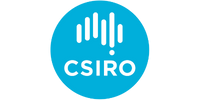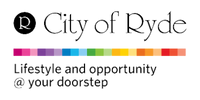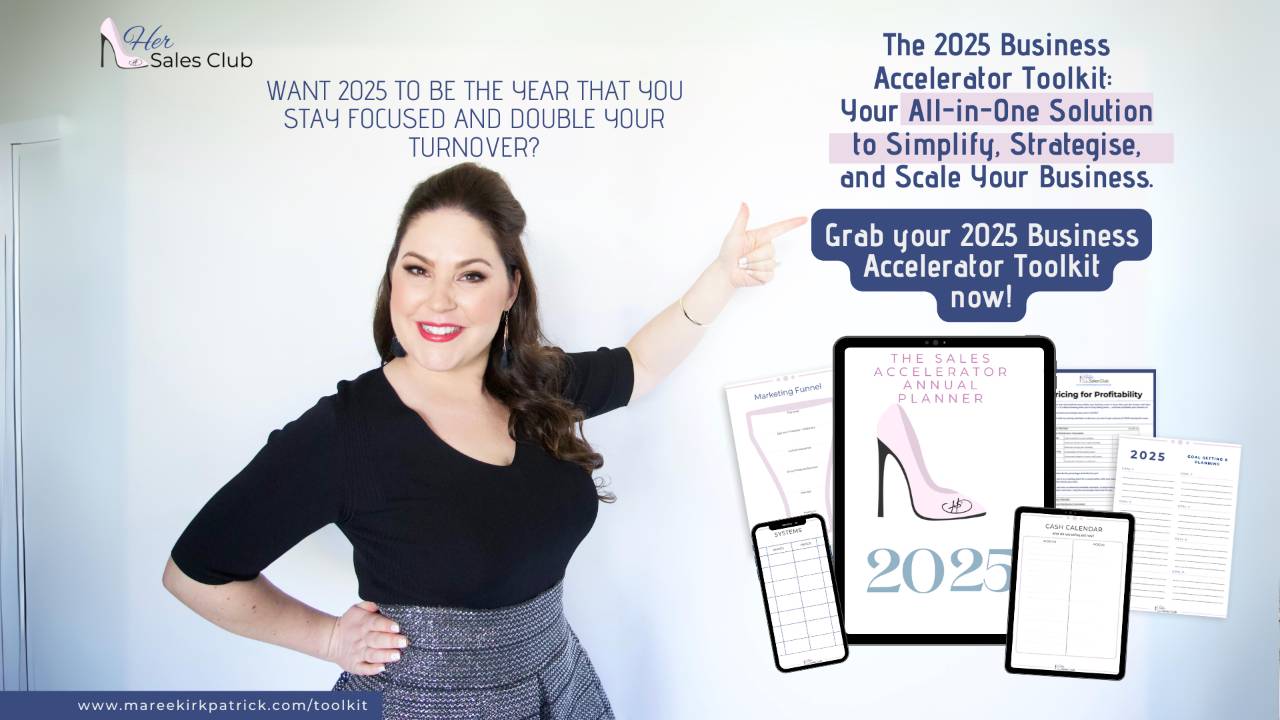Podcast Episode

Maree shares personal anecdotes on the pitfalls of over-complication and offers actionable insights into creating a business that's not just effective but enjoyable. Key topics include the need for fewer, more impactful offers, the importance of a simple buying process, and the effectiveness of marketing that sells. She emphasizes the crucial alignment of sales and marketing, ensuring they work in tandem to drive results.
Maree also talks about her journey of learning to focus on what really sparks joy and delivers results, and how that realization translated into increased revenue and a more fulfilling work-life balance.
Key Takeaways
-
Streamline your business by reducing offers and simplifying customer pathways.
-
Stop creating from scratch. Optimize and refine existing offerings for better outcomes.
-
Your marketing should actively lead to sales, not just engagement.
-
Repurposing content is vital for efficient marketing.
-
Business should be profitable, aligned, and enjoyable.
TRANSCRIPT
Hello and welcome back to the sales show. Man. We are in March 2025 and I cannot believe how quickly this year has gone. I feel like it's already been a beast of a year. But excited for the next quarter that we're just about to start.
And today that leads me into. I want to talk about how we can stop making business harder than what it needs to be and how we can simplify, streamline and a whole heap more. Let's be real for a second. I know as business owners, sometimes we can completely over complicate things and make things harder than they need to be. So we are out there doing the absolute most and we are trying our best.
But sometimes the money isn't just there. And so I see it all the time. People are complicating offers, they're creating content that's exhausting to keep up with. They feel like they've got to post 50 billion times a day or it's all about being seen and their creatives and all that sort of stuff. Or they feel like they have to do absolutely everything when realistically we don't.
And they're constantly thinking. And I know this as a business owner myself that runs multiple businesses, I'm a mu. I understand all of it. I honestly understand that sometimes we feel like we should be doing more. But here's the real truth, right?
More does not equal better. More does not equal more money. And more does not always equal more success. What actually moves the needle is simplification, making sure that everything we do is simple, easy and effective. So today I want to talk to you about how we can actually simplify your offer so that they actually sell.
And it's really easy. I'm all about easy business. It doesn't need to be hard. It doesn't need to be complicated. It just needs to be easy and efficient.
I also want to go through why your business may need fewer moving parts, necessarily more. I know a little controversial, but stay with me. And I also want to go through how your marketing can actually do the work for you instead of you being a 247 content making machine. Because I really feel that business should not feel like an endless to do list. I know that if we wanted to, our to do list can go on and on and on and on, day in, day out, month on month out, year on, year out.
I know that there's still things that I've been wanting to do in my business back from five years ago, but when I actually sit back and look at it, is that really going to Move my business forward. Hmm. There's obviously a reason why I haven't done it. So we just want things to feel clear, structured, and dare I say it, business should be enjoyable. Hubby and I were going for a walk yesterday and we're chatting about business and money and goals, property goals, where we're looking at living or different lifestyles and things like that.
And what I found really interesting was we were chatting to some friends on the weekend who earn really, really great money. But they work for someone else. I shouldn't say, but. And they work for someone else. And what Hay and I were talking about is the great thing about business is the unlimited income cap that we have, right?
So if you're in a job, a lot of the time you're at a set income or set bonuses or commissions or however it works for you. But with a business, there's no ceiling on it. The only ceiling is your own. I believe is between your two ears and our mindset side of it. So I really feel that business should be enjoyable anyway, so if you're ready to ditch the overcomplicated and to really start making money in the way that works for you, for your business, your lifestyle, you as a person, let's do this.
I want you to stop and ask yourself, do you ever feel like you're constantly working your backside off but not seeing the money to match it? I see this with women in business. When they launch, they put in a lot of effort into launching and the financial rewards just aren't there. And let me tell you, it's not because you're not doing enough. It's probably because you're doing too much and maybe too much of all the wrong things.
We need to make sure that our business is aligned with us and our customers and that we can streamline it as easily as we possibly can.
These are the. These are the. The challenges that I tend to see often, right? First one is that people have way too many offers, way too many things to sell every month or every quarter or every year or fortnight or whatever they are creating new offers. You don't need to have 15 different ways for people to work with you.
There, I said it. You don't need it. Too many choices equals decision fatigue or over complicates things and your buyer will not buy. Your audience needs a clear, simple path on what it is that you do, how you help them, and what that solution is. Simple path to buy.
Don't overcomplicate it. You don't need 15 billion ways for people to work with you. Okay. The other mistake that I see, as I mentioned, is people constantly creating new things all the time instead of refining what's already working and literally turning the tap up on it. We want to.
We don't want to be constantly building from scratch. We don't want to be constantly relaunching or launching a new shiny object. It's absolutely exhausting. Right? Because if you think about it, if you're launching and if you're launching and creating new offers on a regular basis and you're doing it properly with money, marketing strategy, sales strategy, then there's a lot of work that goes into that and it can be absolutely exhausting.
Rather than having your key offers and just focusing your sales and your marketing on that. Or what else I see is people reinventing the wheel with every time they launch or go to sell that same offer, instead of just having the repeatable systems and processes that support you, rather than scrambling every time you need to launch or every time you need to put an offer out there. Or when you look at your cash calendar, like we spoke about in last week's podcast, when you look at your cash calendar, you know what you're selling for that week or that month, then you know what marketing and sales strategy to have behind that. We're not scrambling for it every time. And the other thing that I see is people trying to be across every single platform constantly and not tailoring their content and their strategies to each platform.
And this is why I think a lot of people feel that business is hard. It's not because it has to be, because it's probably more because we're making it that way. So let's change that up. Let's get into how we can look at simplifying your offers. First, I want you to think about and keep this in the back of your mind, that fewer offers can mean bigger impact.
You'll be known for one clear thing that you do, and the opportunity and the choices there that people have are clear and simple. If you want toa make selling easier, you need to streamline what you're selling. So let me give you some steps. Step one, get clear. Get really freaking clear on what are your core offers.
So things that you want to ask yourself, what do you actually love delivering? I don't know about you, but there's been times in my business career where I have developed an offer thinking, this is going to go gangbusters, and it's going to make me a lot of money. It's going to be easy. And then when I've actually started delivering it, I haven't loved it, it hasn't lit me up, it's been more of an energy drain. So I want you to actually think about what do you love delivering and how do you love delivering it?
Okay, then we want to look at what gets your clients or your customers the best results. Not just some results, the best results and then what can you do on repeat without burning out? So it lights you up, it gives you energy, you're clear on what it is that you do and your clients are clear on what it is that you do. And your core offers are based around that. So you should have a signature offer.
So this is that main thing, your bread and butter, what you were known for. And then we need an easy yes offer. So this may be a low ticket or a mid-tier option for you that you can warm people up with or people can get a taste of what it is that you do without going all in. Sometimes people just want to dip their little toes in the water. And then we want to look at having a high level option for those who want more access, more support, VIP treatment.
And in my business, the way that I look at that is that they want it hard and fast. They want to be able to build that sales process out, get those sales strategies happening and then turn that dial up as quickly and as hard as they possibly can to get quick results. So that's it. You don't need to have 10 different offers. You don't need to have a whole product suite with a whole heap of complicated options for people.
Three things, signature offer, a tiny offer or low ticket and then a high level option for you. Okay, step two, we want to stop creating from scratch. So we want to start optimising what it is that you are doing. So instead of building new things all the time, focus on making your existing offers and your existing launches better, refined, optimised, polished, constantly. Go back and this comes back to your tracking.
Figure out what's working and what's not, what is selling and what's not. Why is it not selling? Is it not the right offer? Is it not the right price point? Is there no sale strategy behind it?
Is there no marketing strategy behind it? There's a whole heap of different things as to why things don't sell. But I want you to, instead of creating things when the sales aren't where you want them to be, go back and start optimising instead. Okay? That will be a huge game changer for you.
And then step Three is make your buying process ridiculously simple. Like ridiculously simple. No over complicated sales pages. Yes, you need a less that let. Yes, you need a sales page.
But no, it doesn't need to be complicated. It needs to be really clear and show people what the true outcomes and values are that they're going to be getting. Why would they work with you? Not just your inclusions of what's in your course, your programs, your offers, why would they actually work with you specifically? I also, and this may be a little bit controversial as well, I see a lot of people say DM me for details or and DM me for details is always an interesting sales strategy.
I think there's a difference between saying send me through the word sales or whatever and you're getting information from that. But we don't want it to be this cryptic, holding back type salesy experience for our customers. We don't want it to be ick. We want to be. We want to be able to give people an easy way to buy.
Think clear pricing, think clear next steps, think clear checkout processes, Think really clear understanding what they're going to get out from out of it. That's why I always talk to my clients about having that three step framework. If someone is standing on one side of a rapid river or a highway and they're struggling and they're like I just want to get to the other side, what are those three steps that you can help them with to get them to the other side into what it is that they really want? So if people have to think too hard about what is that you do, they won't buy your job as the business owner or the. We have people that listen that are sales managers or in the business development side of their business.
Your job is to remove the friction and make the pro the process as smooth as freaking possible for your customers to buy. Don't overcomplicate it, simplify it. I know back in the day there used to be this like apply to join my programme type stuff. For me I think that's a really. It puts up a lot of blocks for people to buy from you.
So have a think about what is it that your customers want. Think about your ideal target market and your ideal client and what is gonna be the easiest way to get them from A to B to move through your business. And then we want to look at how do we make your marketing do the heavy lifting so that it's not always about you. Right. This is where a lot of people work so hard in their marketing.
So hard But I want you to understand that marketing is not just about showing up every single day out of obligation. Right? It's not just posting to be consistent. It's not just creating endless amounts of content for free and hoping that someone will buy from you. Marketing should be helping you do the sale for you.
So I talk about this a lot. The difference between sales and marketing is marketing drives the leads into your business. Sales helps you convert them. Right? So if we don't have that sales process nailed, then a, there's no point in turn on your marketing tap.
But that's a whole another podcast on itself. But we want to make sure that when we turn on our marketing that it is going to flow into our sales process and be high converting. So let me give you some quick tips on how you can actually simplify this. First, you want to create content that actually leads to sales, right? Stop posting for engagement and start posting with the strategy.
Teach people what they need to understand before they buy from you. Right. So I talk about this a lot with my clients. There's a difference between content that is in front of the curtain. So that higher level versus once people are behind the curtain and are in your business, what does that look like, right?
What do they need to understand before they buy from you?
And then we want to share success stories to show how our offers have worked. That social proof, that understanding of people being able to see themselves in your work. We want to talk about that transformation. Right. I see so many people on social media talk so much about the features.
My course does this. My I work with people in a one on one way, 60 minutes a week. No one cares. They want to know what are the benefits and the outcomes. Whether they work with you once a week or once a month.
If it gets the same result, who cares, right? So we want to make sure that we're talking about that transformation, the outcomes that people are going to be getting. And then step two, which I highly recommend, is to repurpose everything that you do. Right? So this podcast will then be come into social media posts and we'll then use it for our emails.
It will go onto YouTube. We may create blogs from it. Everything that you do needs to be repurposed. Even when I present for people master classes or workshops or anything like that, I will record it and repurpose that content. Now I've done this even when I've presented live in workshops and we haven't necessarily had like professional recordings or anything like that.
I will literally clip a mic onto me and record it on My phone, right? That will then create the clip. I then pass the clip on to my team who will repurpose that content. Because it doesn't matter where I'm creating the content, whether it's in master classes, whether it's in a podcast, whether it's in newsletters, whether it's in blogs, whether it's in live presentations or training trainings that we do. We constantly want to make sure that our messaging and our teachings are the same.
So it's constantly being about how do we repurpose this in the most easiest way possible? Now, guys, we're in 2025, right? There's so many different pieces of technology that you can use to repurpose content. Okay? It's not about you sitting down, having to do all the hours and hours and hours of it.
Find, find the tech that can support you. Okay? Anyway, got a little bit ranty there. Repurpose everything that, everything that you do. So we want to work smarter, not harder.
And then step three is to build that really simple pathway for people to buy from you. So someone finds you today, how do they go from interested to a paying client? Okay, if they've seen you in a workshop, if they've seen you at a networking event, if they've seen you on TikTok or Instagram or any of your reels, how do they go from, oh, this person looks interesting. Let me do a little bit more stalking into a paying client. Do they join your email list?
Do they need to out reach out to you for more information? Do they go straight to a sales page? What is that process and that pathway for your clients? Your audience needs a really, really clear journey to move through your business. Otherwise they get stuck at the, oh, I love your content.
Oh, that's really cool. But no one actually buys from you. That is freaking hard working business. That's when business becomes really, really hard. Okay?
So we want to be able to have a clear pathway, that clear customer journey path. How do people find you? That's one step. But how do people, once they've found you, turn into a paying customer? Okay?
And so when we look at making business fun and easy, we want it to be aligned. We want it to be definitely profitable because you can have a whole heap of funny business and make no money.
I know it happens. I see it all the time. People are like, oh, but I just love my business. And in the back end, they're making no money. And the stress of having no money and the financial pressure is freaking huge.
So it needs to be aligned. It needs to be profitable and it needs to be freaking enjoyable. Guys, we're not here for a long time on this earth, you probably spend more time working than you do doing anything else. Make it enjoyable. And I say this as someone that used to overcomplicate things.
I used to overthink things. I used to procrastinate on stuff. I am. I'm not sitting here saying that I've had it perfect all along. I'm telling you this because I've been through it myself, right?
I used to think if I just do more, I used to put off exercising because I think, oh, I could just do an extra hour or two of work. I used to sit and think, oh, if I can eat my lunch at my desk and I can get more done, and then that means I'll make more money. M. No, it actually turns out that the less I do, the more money I make, because I'm just focusing on, what are those needle moving things? Okay, so it's not just.
Not just about creating another offer that people will surely buy because it's, you know, definitely it's this offer that's going to make it. No, we want to make sure that what you're offering is optimised and that it's really clear and easy for your clients to understand. And it's not just about showing up more. Okay? Showing up more does not equal more results.
I may be preaching to the choir here. If I'm in your ears and you're listening to this and you're thinking, yeah, maybe I need to step back and look at what's actually going to make the needle move rather than me constantly having to show up. I want you to actually think about that.
And as I said, when I. The truth for me was all the truth in my business was when I simplified things, I made more money. It's true, it took me a long time to get over that mindset, but the less I do, the more simplified, the more I made. And then when I stopped chasing everything and just focused on what lit me up, what felt good, where were my clients hanging out, I had a lot more time and a lot more freedom. And then when I actually focused on what was working because I started tracking it and looking at the data, business became fun again because I didn't have to spend 20 hours in Canva creating content and templates and all the things, I knew that the best way for me to show up is by talking to people.
Whether that's on a video, whether that's in a podcast, whether that's presenting. The more I do that. That stuff's easy for me. I know it's not easy for everyone, but that's easy for me. Ask me to sit down and write a blog or create tiles in canva.
That to me is hard. I'm not a creative in that space. So when I sat back and looked at what was working and what I enjoyed, then I made more and business became a whole heap more fun for me. Less stress, more success, baby. Okay, so let's recap of all the rantiness.
More does not equal better. It does not equal more money. If business feels hard for you, it is time to simplify it. I do this every, I don't know, six to 12 months. I've literally got one on my board at the moment where I've sat down and mind mapped the current office that I've got.
What I'm enjoying, what I'm not enjoying and what I'm not enjoying, I have then looked at what can I change to simplify that and make it more enjoyable. Because if I enjoy it, then I'm likely to do it. Okay, so if it feels hard at the moment, let's look at simplifying it. Fewer offers means bigger impact. I remember listening to Denise Duffield Thomas once talking about business owners breaking their business because things become too easy and they think that they need to overcomplicate it.
That's not true. Right? We need to just have it really simple. Few offers, bigger impact, bigger success. And that your marketing should be doing the work for you.
Okay? So your marketing should be driving your leads. Your sales should be converting your leads. So if you're sitting there, you're wondering or you're frustrated because you're not getting enough revenue into your business, Think about, is it the leads or is it the sales? If you've got leads coming in, if you've got a database sitting there where a whole heap of people haven't ugh bought from you, then we need to look at your sales and your conversion rates.
So let me give you a few quick action steps for today. First of all, I want you to look at your offers. Are they clear? Are they simple? Are they easy to buy?
Are they nailed down? Right? Not 15. Maybe it's the top three to five maximum. Then we want to look at your marketing.
Does it actually lead to sales? If it doesn't, we need to change it. Okay? And then we want to look at your business. Where are you over complicating things?
Where do things feel hard? Where are you not enjoying some things in your business. And look, there's going to be some things that you don't enjoy doing your business, like the financial accounting stuff. Not my forte, but I know that it's just something that I need to do and I've streamlined it to the best of my ability and I have backup support with my finance team that helps make sure that it's all sorted right. But I want you to really think about what else are you over complicating in your business and how can we simplify it.
Now, if you want some more help with simplifying things in your business, especially your sales and marketing, I do still have the annual sales planner and it literally allows you to map out your offers for the whole year. So it's not about having 12 offers, one a month. It's about where are your core offers, where are you marketing them, how are you selling them throughout the year so that you know A where your money is coming from and B, to align your sales and marketing so that they work together, sales and marketing need to work together. Sexy, streamlined. And when that is sexy and streamlines an easy, less stress, our shoulders drop.
We can breathe, we can turn our heads off at night, we can be present with our families because we already know what the plan is for our business. We can step in and out of it when we need to and we can know exactly where that money is being generated from. So if you want to check it out, just go to mareekirkpatrick.com planner. It'll also be in the show notes. And as always, if this episode hit home from you for you, I would love for you to tag me at Maree Kirkpatrick on the socials and tell me what is that one thing you're going to simplify in your business this week?
If you are listening to this early in the morning, I want you to sit down at pencil and what is when is that time that I'm going to allocate 10, 15 minutes to see what I can simplify in my business to make things easier. The easier it is, the more money you'll make, I promise you. And a whole hit more fun. Until next time, have an amazing week and I'll see you soon.
COMPANIES WE HAVE WORKED WITH:














